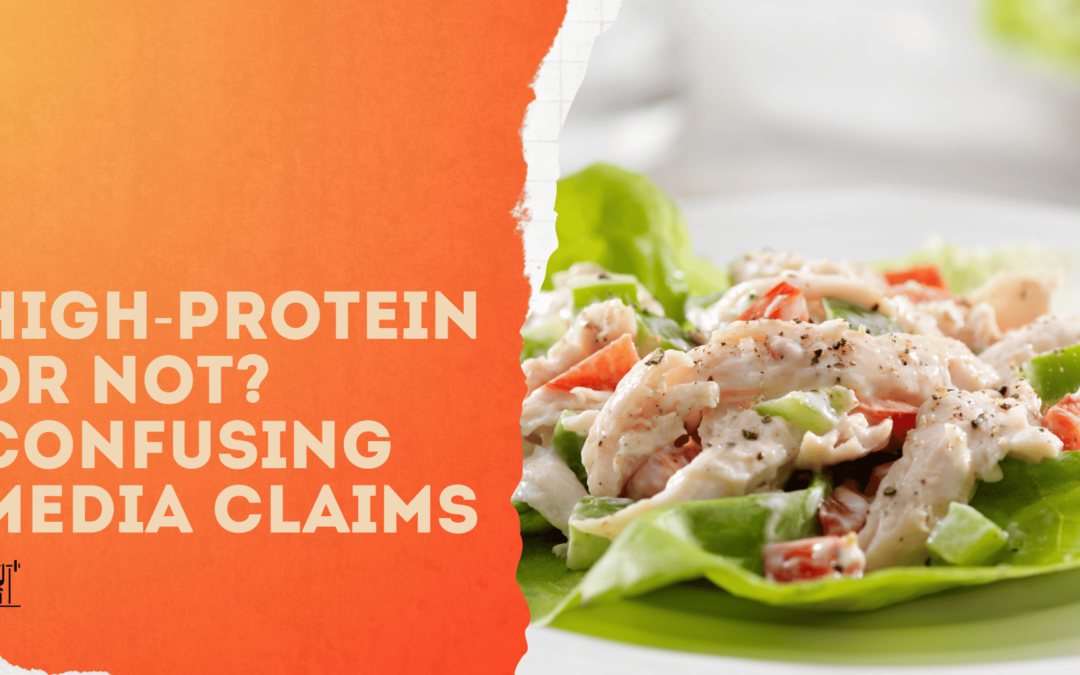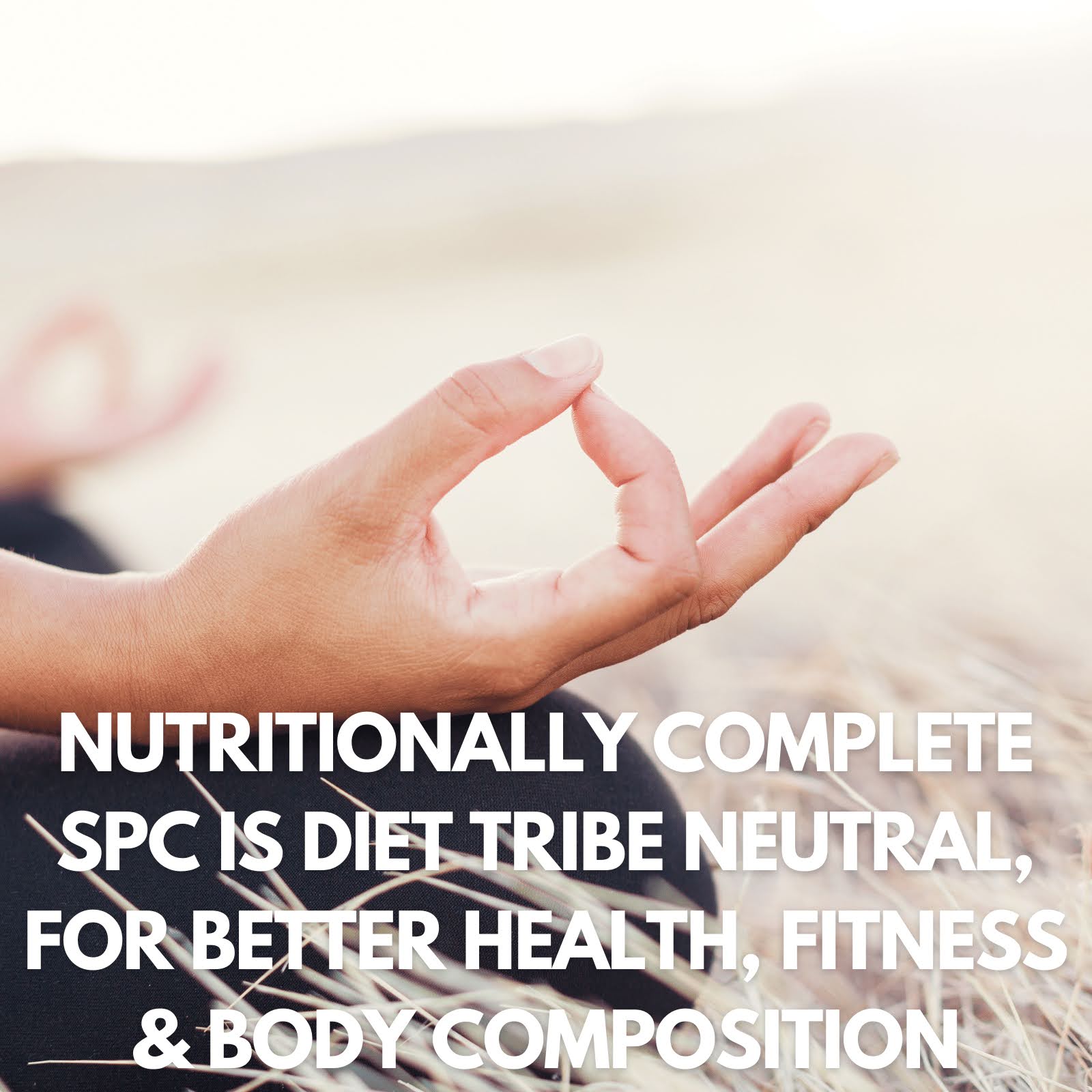
Strength By Fitness
The Failure of Health and Nutritional Media & Some Experts is a Basic Knowledge Gap Issue.
Welcome to another fact-based article from Strength by Fitness.
Today I am going to be talking about a disappointing article from the Independent that managed to get some of the many high-protein benefits right, while at the same time repeating the same, old, and tired, out-of-date beliefs we have unfortunately been riddled with for so many years already.
Such as claiming that eating more than the RDA does nothing for you unless you are old or a “world-class super athlete”.
Equally bad is the claim that high-protein diets harm your kidneys.
Here is the fact-based truth of a high-protein intake, based on current scientific knowledge, and this is why it is universally good for your health, and body composition, no matter your gender, age, or fitness status.
Lets get a big one out of the way first of all, the health of our kidneys, chronic kidney disease, CKD in short, and the way our kidneys respond to a high protein intake.
No, a high-protein intake does not harm healthy kidneys.
In fact, it lowers mortality outcomes and improves health outcomes even in kidney patients level 1, 2, and 3 as we have previously discussed here at Strength By Fitness. Browse through our select articles below this article for a deep dive on the many numerous ways that a low SPC, Low-protein food approach is the wrong choice for almost every human on the planet.
This article from the Independent and its quoted experts completely miss the mark on up-to-date science, and doggedly repeat the RDA mantra that´s been in play for so long.
One of the foundational outcomes this article get´s wrong is the basic high-SPC pillar of more daily protein, because the higher our SPC ( satiety per calorie ) the more drastically our satiety will increase from the meal we are eating. This will in turn lower the total food energy intake we are getting this day, not increase it.
Protein is not the only thing that matters for SPC, but it is the most influential nutrient, and consideration. Another benefit is that it allows for a greater amount of our precious lean muscle mass, strength, physical capacity, mobility and health to be held on to as you lose excess body fat.

More protein makes for a leaner you at large. Not a fatter you.
They completely miss the point that a high-protein, high-spc food approach also promotes higher fiber intake and nutritionally complete food habits.
Because the high-protein, high-spc model that Strength By Fitness, and Hava, and others promote and coach is based on not just the amount of protein you consume, or the total amount of energy you consume per day, it is built around a highly nutritional intake, with as many nutrients as possible per unit of energy.
The very opposite of what happens when you consume a low-protein diet ( following the RDA for your protein intake is a low-protein food intake ).
A low protein intake leads, on average, to a higher energy intake with fewer nutrients per unit of energy.
Best of all, what I am saying is not standing on the foundation of one study, or a n1 case study.
It´s built upon a massive amount of scientific studies and millions of healthy fit living people, as well as countless of obese, out-of-shape people, and skinny, under-muscled people, who have all, across decades of living, turned things around and made immense improvements to health outcomes, fitness progression, performance, and body composition by adhering to a high-protein, high-SPC food plan with as much protein, and other micronutrients per unit of energy.
More nutrients per unit of energy absolutely destroys high-energy foods with fewer nutrients per unit of energy. Especially so when the main macro pillar becomes protein.
The Independents reporter, and quoted experts seemingly glance over how the more protein people eat the less nutritionally poor high-energy foods they tend to eat.
‘In other words, the fear that high-protein food consumption would lead to excess food energy intake, and more nutrient deficiency is the opposite of what actually happens for the typical human being.
They completely miss the proven outcome that a high-protein intake leads to substantially more muscle mass for average gym goers, better health outcomes, and less excess body fat over time.
Yes, average gym goers.
Not national team pro athletes.
Heck, they gloss over the scientific fact that the more protein people eat, the better their health outcomes and mortality outcomes no matter if we are talking about active fitness people, sedentary people, young or old, people with kidney disease, or super healthy, super fit people.
A high-protein, high-SPC food approach also happens to be diet-neutral.
A higher than RDA protein intake makes the health, fitness, and body composition situation better, universally, no matter who you are.
With the sole exception of people who for medical reasons, such as CKD levels 4, and 5 can not consume a high amount of protein.
As such, this is a really poor article which from its foundation of partial truths and lackluster conclusions tragically will contribute to the low knowledge level of what actually makes for healthy, fact-based food, health, and lifestyle habits for both sedentary and active fitness people around the world.
As it is, the quoted experts should be ashamed of their tired, out-of-date contribution.
Before we close out this article, let me repeat one thing.
A high-SPC food approach with a ton of protein per meal, and day will improve your health, fitness outcomes, and body composition.
Not make it worse.
Best of all, it does not matter if you want those plant-based fibers or not ( you should get plenty of daily fibers too ), because a fact-based, high-protein, high-SPC food approach works really well no matter if you are plant-based, omnivore, high-protein & high-fat, mostly a carnivore, or anything else.
Fiber and healthy micronutrients are in other words not in competition with the main macronutrient pillar which is protein. Neither is a low-fat-high-protein, plant-based food approach the same thing as eating no healthy fats at all.
So not a big difference in kg. However, the relative difference for the same exercise volume and period of time is massive.
Coach Mike, Strength By Fitness
Do you need help succesfully changing your lifestyle habits?
We provide coaching, online, and on-location, in-person.
But do not take my word for it. Down below I will link you to a few of our articles, and all the cited studies they will lead you to for your own deep dive. But you also have a massive amount of ongoing data from the SPC app Hava to look at, where it is universally proven by tens of thousands of people in a rapidly increasing foundation of data that the higher the daily, and meal intake of protein, and the higher the SPC score, the less people eat on average as far as daily energy intake goes.
Now, pause for a minute before you start drumming up a premature response and consider this. All this combined, tens of millions of real-life N1 case studies, thousands of independent studies across decades, a flood of Hava users, and decades of real-life coaching experience, and when you combine it all the fact-based outcomes in real-life and studies is that it leads to better health outcomes the more protein people eat.
We perpetually see better body composition the more protein people who exercise, and or diet alone consume as they lose body mass ( body mass is made up of both fat mass, and lean mass ), because the higher the protein content the more of that precious lean mass people hold on to.
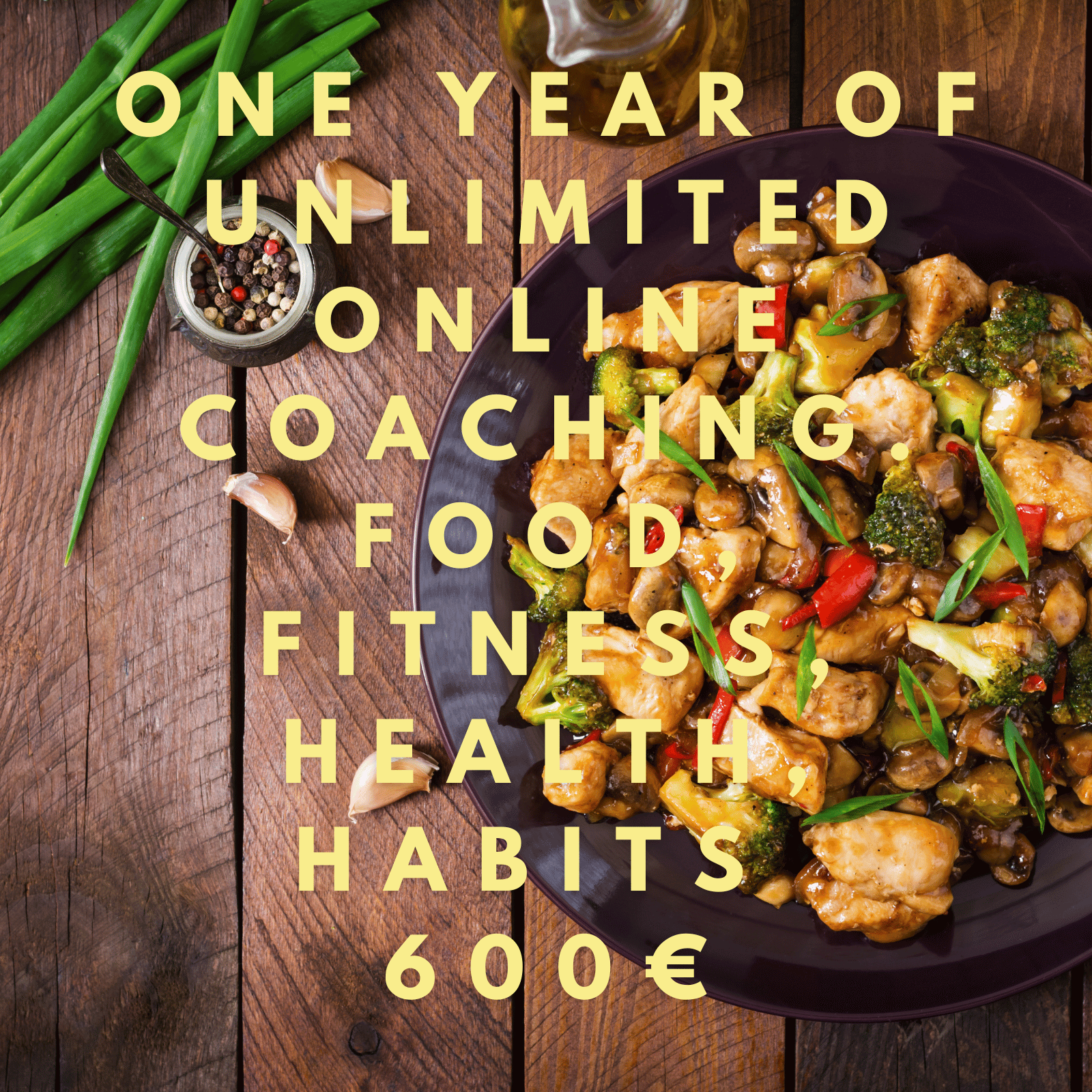
We see clearly measurable differences in lean muscle mass progression when average steroid-free people train with a proper high-protein intake versus an RDA-based protein intake.
Yes, in actual body mass, we are talking about a small difference in absolute kg. But that´s because we steroid-free people do not pack on 50 kilos of muscle mass in five years’ time. But what we see in study after study is up to a 2x improvement of the amount of lean muscle mass you will get during the same time frame when we compare an RDA-based protein intake with 1.6+ grams of protein per kilo of bodyweight and day.
In numbers, that could be just 1.7 kg of lean muscle mass over a unit of time, instead of 0.8 kg of lean muscle mass.
So not a big difference in kg. However, the relative difference for the same exercise volume and period of time is massive.
The same amount of difference is observed in the loss of lean muscle mass during a fat-loss cut.
Yes, the above difference in hypertrophy holds up in a similar way when people are intentionally eating in a deficit in order to lose excess body fat.
Doing so always leads to a loss of lean mass too. Both muscle mass, as well as other areas of lean mass. This could be organ mass, and bone mass, if the deficit is big enough and maintained for long enough.
And yes, all reductions of lean mass are highly undesirable if you care about your health. But a loss of excess body fat is on the other hand very positive for your health outcomes.
So what to do?
The answer is to eat more protein so you preserve as much as possible of your lean mass while you lose that excess body fat.
This extremely positive outcome becomes even better if you combine that fat loss not just with a high-protein intake, but also regular strength training. Doing so provides the by far best outcomes in both studies and real life. In health, body composition, fitness capacity, and lean mass outcomes.
But yes, somehow, none of our fact-based reality seems to matter to the Independent journalist who loves Weetabix so much she thinks the world needs to eat less protein. Never realizing that the best of both worlds is to eat enough fiber, and other micronutrients while also getting that high-protein intake going.
Nor do the quoted “experts” steer her right. But you should not be too surprised by that last part.
Studies prove that most people, including industry experts in food, fitness, and health are so poorly educated, and bad at keeping up with the scientific advancement that they get most basic fact-based questions wrong when tested.
The irony is that this Independent article perpetuates a deeply harmful circle of ignorance that feeds itself.
The lazy, and deeply flawed opinions and conclusions of this Independent article are what makes a majority of people unable to correctly answer basic fact-based questions on health, food, and fitness.
Do better journalists and experts when you sit down to create another health, food, and fitness article. But lucky enough for you guys, here at Strength By Fitness we actually know what we are talking about, and those fact-based tests I mentioned, we got 100% of those questions right without a second of delay or doubt.
The good thing with articles such as the Independent’s flawed opinion piece is that it can serve as a reminder to choose your coaches well. Most of your friends, writers in the media, even “experts” in their fields, and social media influencers really don’t know what they are talking about because they are just repeating what they once were told or read.
But our actual knowledge of the world marches relentlessly on, ever deepening and widening our insights if we maintain our thirst for fact-based knowledge. So for your own sake, do not listen to this poorly informed Independent article and up the percentage of protein you consume.
The fact-based protein formula.
Ideally, you should never dip below 1.6 grams of protein per kilo of body weight and day as an omnivore. and for plant-based people, you should probably set that minimum high-protein intake to roughly 2.0 grams per day and kg.
These numbers are, however not hardcoded. If you are on a deep fat loss journey, there are some studies that indicate that going above 3.0g/kg/day can help maintain even more of your fat-free mass.
We also know that the higher the protein intake, the higher the SPC score, which almost universally ends up with less total energy consumed per unit of nutrients. Which for almost every person on the planet is a positive thing.
You might have noticed that I said, almost every person. Because yes, some people exercise so much that they will need a higher energy intake than they can meet if they consume too much protein. So there are some relative scenarios depending on how extreme you are with your exercise routine.
But too much protein is well above 2.0g/kg/day. So make 1.6g/kg/day your go-to minimum if you are an omnivore. And aim for 2.0 as your minimum as a plant-based person, because we lovely plant-based people do need more protein compared to omnivores in order to get the same protein-related benefits on a comparable level, as well as easily reach enough amino acids.
And the older people get, the more important these minimum, high-protein levels become.
Cited Offending Article.
https://www.independent.co.uk/life-style/protein-health-diet-gym-weight-loss-b2689273.html
Strength By Fitness articles relating to protein, fitness, and health outcomes.
1. Fasting, or not with exercise and protein intake.
7 days of fasting: Physical performance and metabolic adaptation during exercise in humans. | Strength By Fitness
2. Chronic Kidney Disease and a high-protein intake.
The Health & Mortality Outcome From Kidney Disease With A High-protein Intake. | Strength By Fitness
3. Fat loss with or without exercise and protein impact.
Fat loss with or without exercise. The health and muscle mass outcome. | Strength By Fitness
4. RDA protein intake versus 1.6, outcomes when lifting weights.
Let us compare RDA protein Intake vs 1.6g/day and kilo of bodyweight. | Strength By Fitness
5. Obesity and nutritional deficits. Low SPC foods are the cause of this.
Our world suffers both obesity & nutritional deficits. | Strength By Fitness
You can also read this article over at Medium if you are a paying Medium Member.
Do you need coaching help in order to create a healthier life? Strength By Fitness coaches people online and in person. This includes fitness, fat loss, nutrition, and health. Strength training, endurance, yoga, and combat classes. Just click coaching in the menu up above and let us transform your health & fitness journey through life together.
strength by fitness
podcasts
recent articles
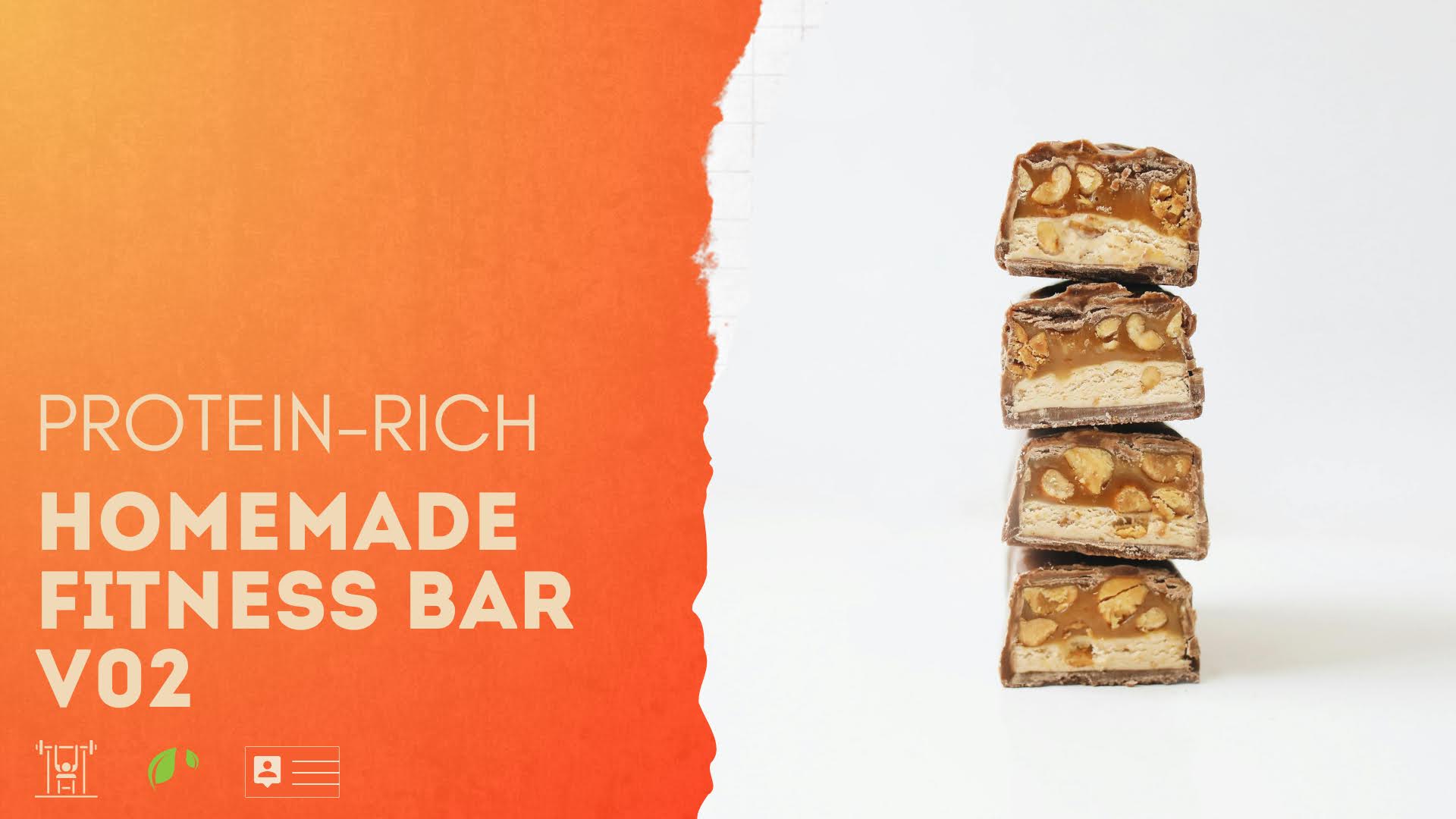
Member Exclusive: Homemade Snickers Date Protein Bar.
Welcome to Strength By Fitness Member Exclusive: Homemade Snickers Date Protein Bar.
Rich in micronutrients, 109 protein, 41 fiber, and an SPC score of 66 to 80, make this a go-to protein bar winner that is very hard to beat.
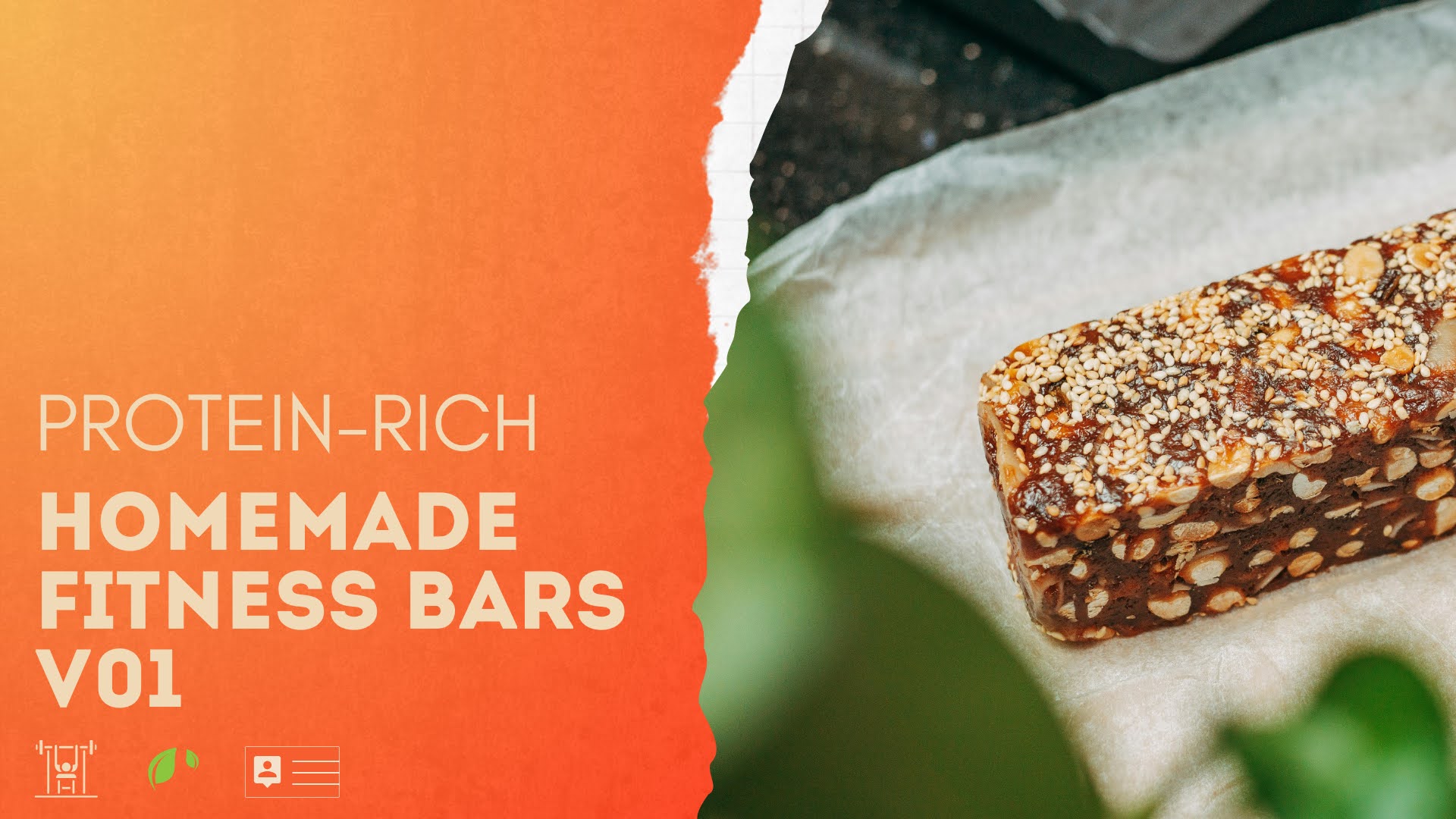
Member Exclusive Recipe: Homemade, and health friendly peanut protein bar.
Digg into Strength By Fitness homemade and health friendly peanut protein bar. This easy to make fitness bar is rich in micronutrients, fiber and protein for every unit of energy.
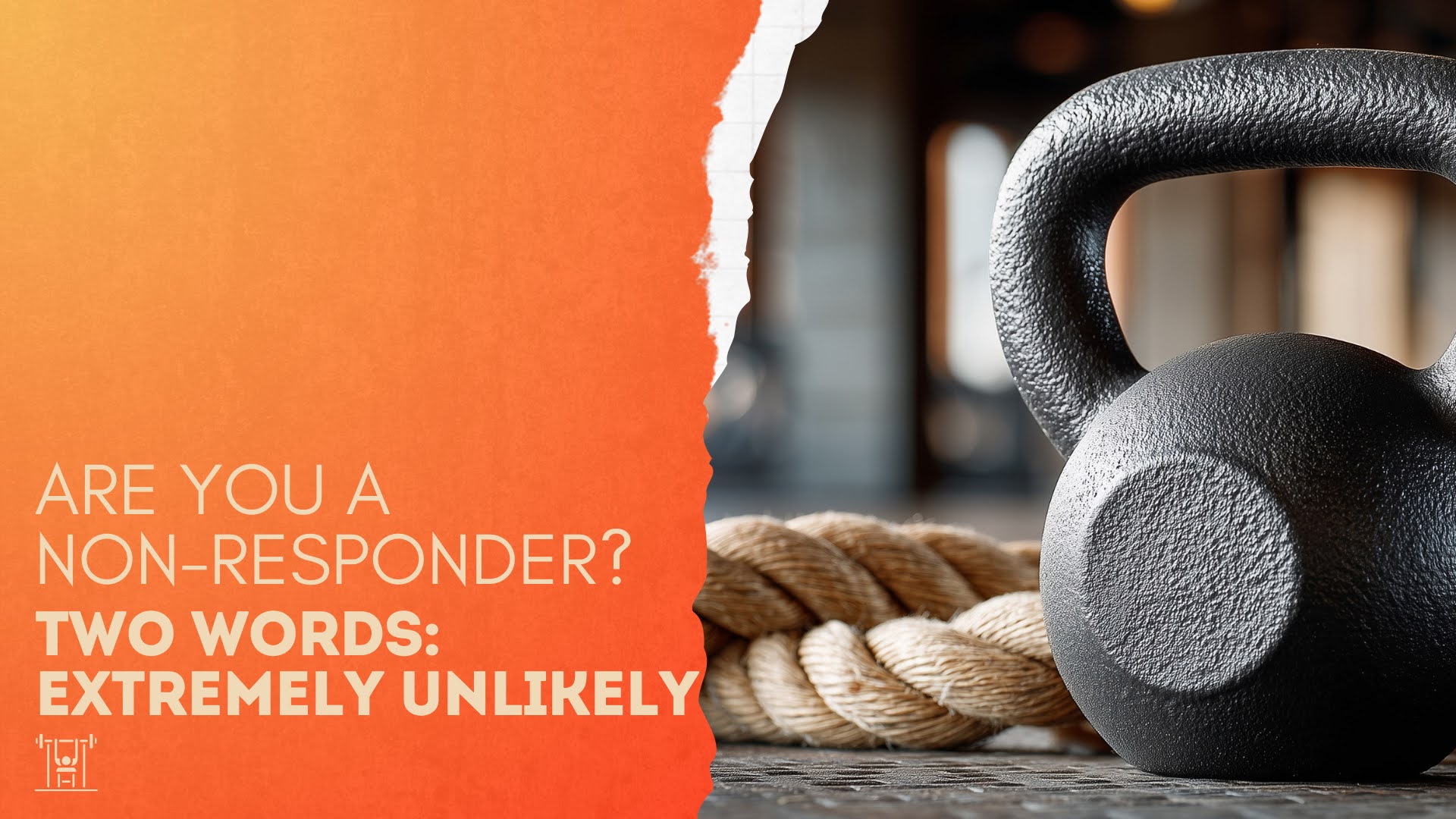
Are you a non-responder? Two words: Extremely unlikely.
In this nail biting free to read, public article, Coach Mike from Strength By Fitness answers the dreaded question, “Am I a non-responder” to exercise?
Two words is enough. Extremely unlikely. But read on to get the science too.
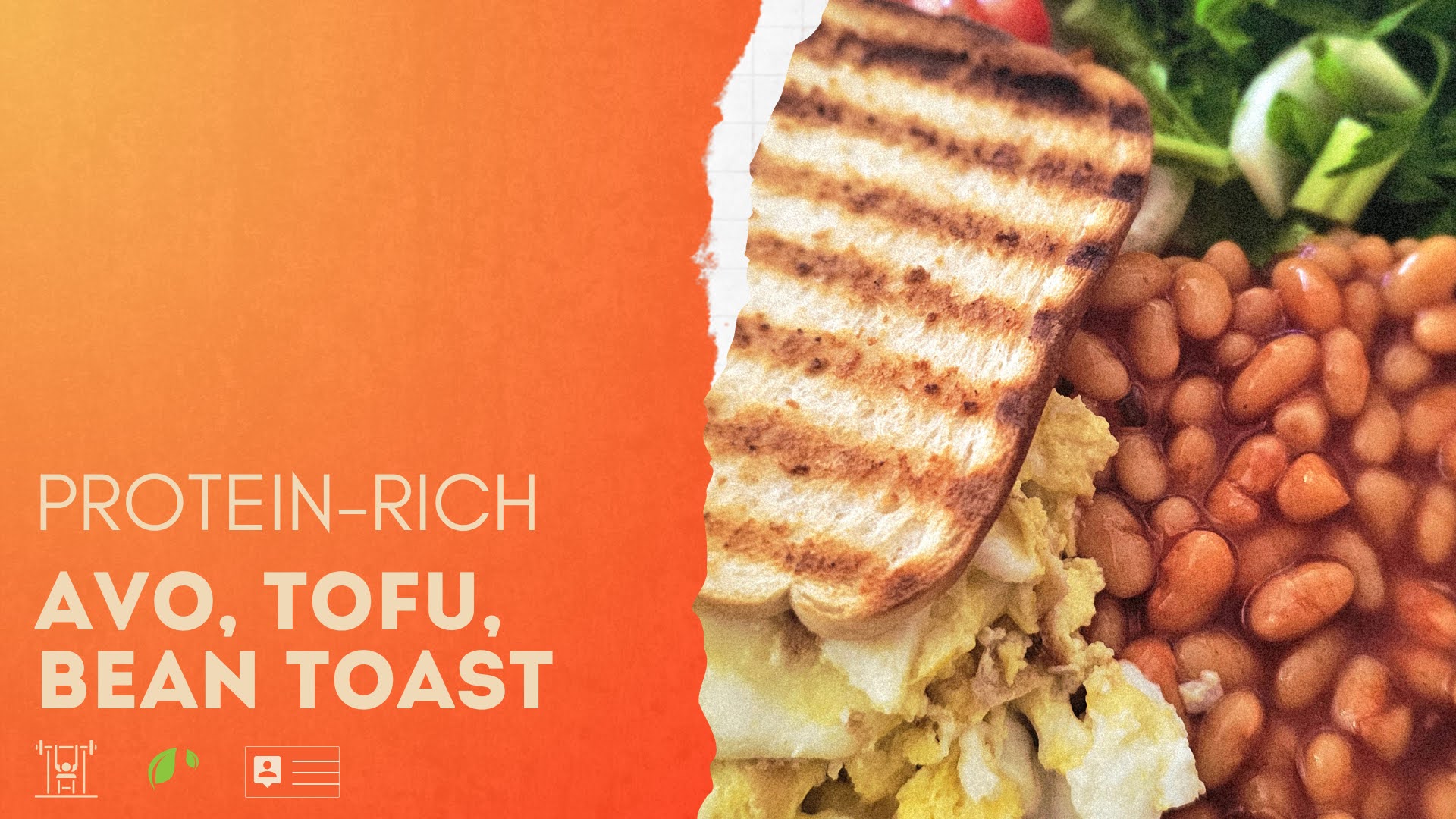
Client & Member Exclusive Recipe: Tofu, Butter bean and Black bean, Avo Toast.
What an amazing health and fitness friendly higher-SPC avo, tofu, bean toasted bread sensation from Strength By Fitness.
60 grams of protein per person and a great 51 to 65 SPC range.
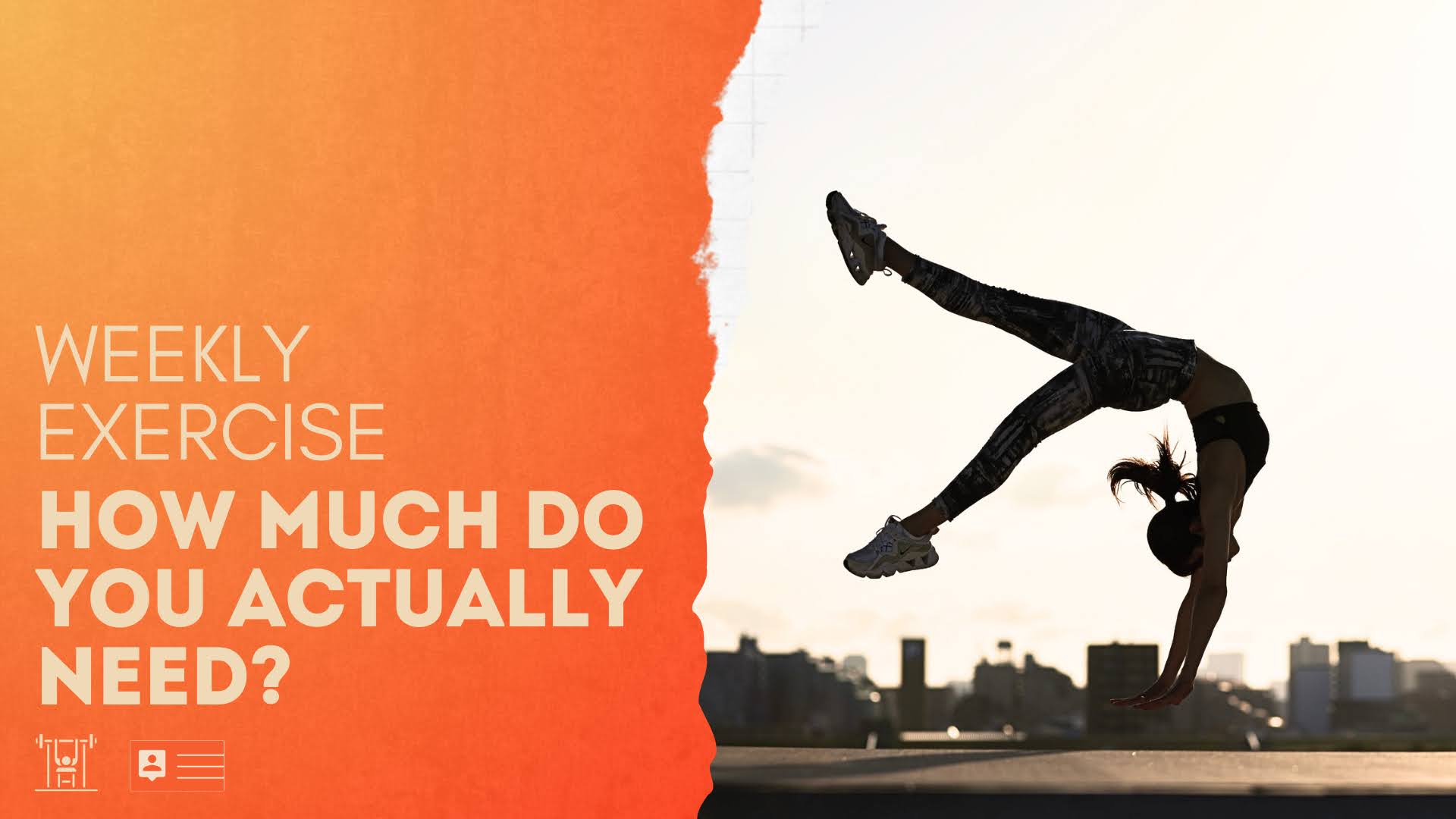
Weekly Exercise, How Much Do You Need? Exclusive Member Article.
How much weekly exercise do you need?
This is a relative answer that comes down to the unique context of your lifestyle puzzle, current habits, and goals.
Read on to find out why this is nothing but great. Unlimited reading of all Strength By Fitness articles, and recipes for only 9US$ per year.
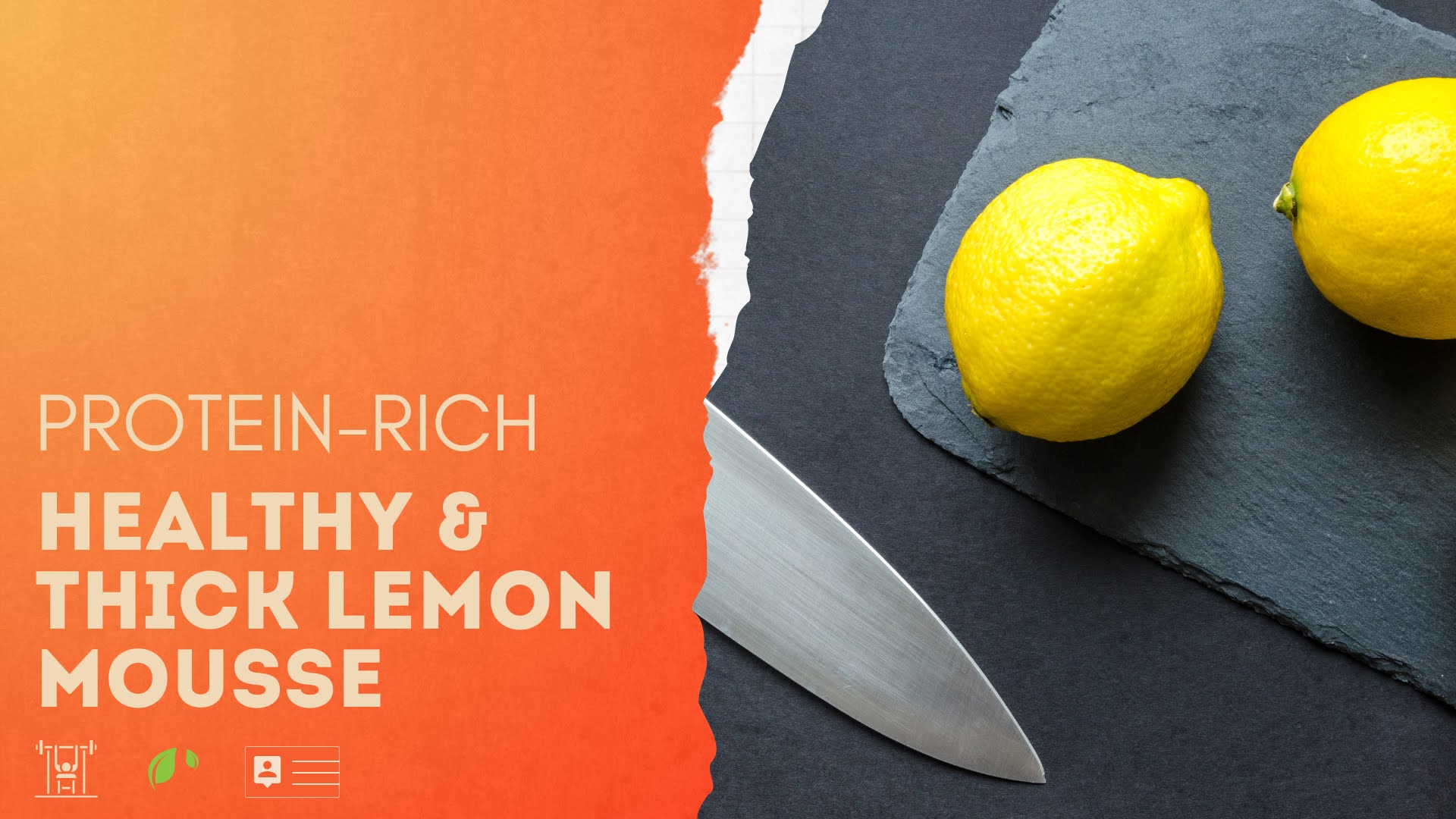
Members & Clients Recipe: Healthy & Thick Lemon Protein Mousse.. High SPC & Protein.
Exclusive Members & Clients Recipe from Strength By Fitness: Healthy & Thick Lemon Protein Mousse. High SPC: 66 to 80, with 80g of Protein.
We appreciate you
so stay healthy & never stop training
Contact
Private In-App Messaging is Available For All App + Coaching Clients
Adress
Coaching Is Available Online Via App on IOS & Google Play, and In-person, On-location.
Copyright 2026 Strength By Fitness.
